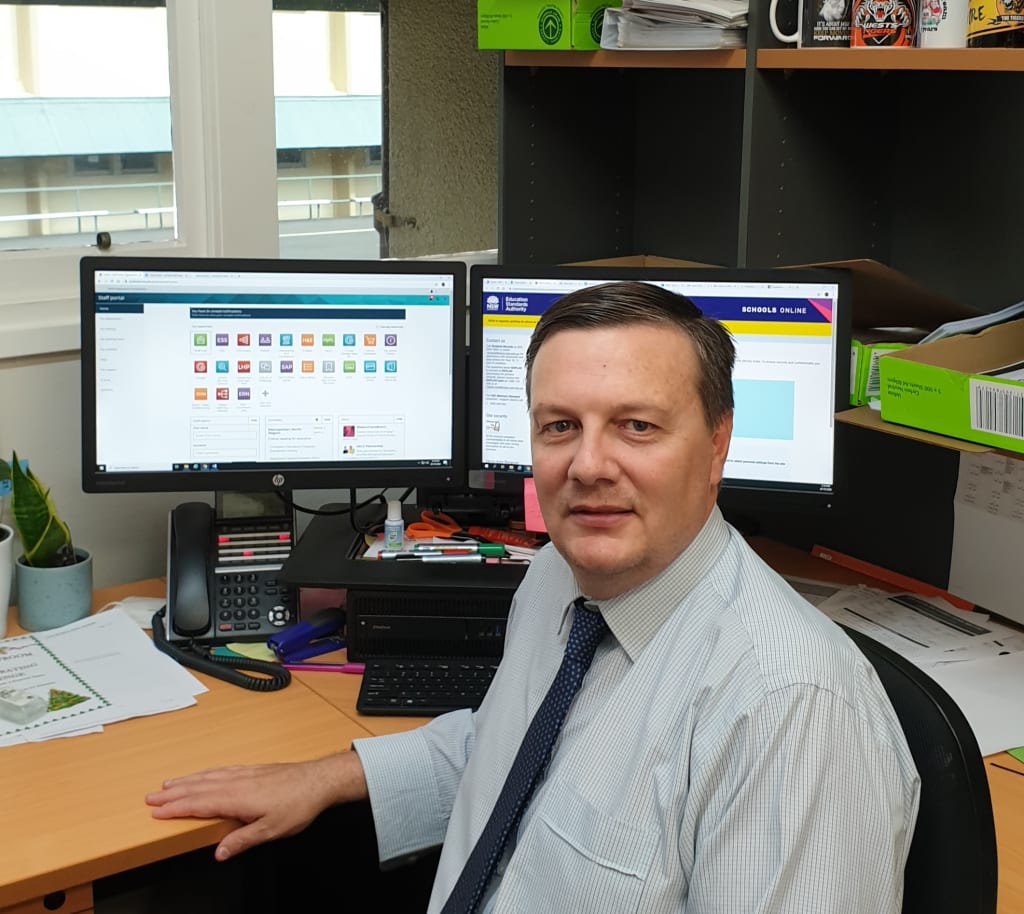Sean Castle discusses the issue of alcohol drinking and teenagers
Sean Castle reminds parents that alcohol is a depressant, which means that it slows down the brain. The more alcohol is consumed, the greater the effect.

Sean Castle: I am a passionate teacher who loves to see students grow and develop into things they never imagined before. Education provides opportunities. Education opens doors to life! I have 20 years experience in education and have worked in various leadership roles since 2007. These include as Acting Deputy Principal, Head of Teaching and Learning and Administration, Head of Curriculum, Supervisor of Welfare, Head of Faculty, Head of Distance and External Education and vast teaching experience. I also posses a wealth of policy writing, staff relations, community relations experience with excellent communication and interpersonal skills. I have range of interests and passions outside of my main career and love to serve the my community as a representative and advocate.
In this article I have discussed about the issue of alcohol drinking and teenagers
Parents can help reduce the harmful effects of alcohol on their teenager by setting clear expectations about what is acceptable and unacceptable drinking behaviour during their child’s early teens and beyond. Sean Castle encourages parents that this conversation is one you’ll have to repeat throughout their teenage years. Set good standards that your teen can learn from by role modelling responsible drinking behaviours yourself.
It’s common for parents to think that if they allow their teenager alcohol in moderation while they’re in a safe environment, such as a glass of wine with dinner at home, this will lead to a better relationship with alcohol. But research tells us this isn’t the case. Parents should actively encourage their teenager to delay drinking any alcohol for as long as possible.
What does alcohol do to a developing brain?
Alcohol affects a young brain more than a fully developed adult one. Developmental processes are still happening in the brain until around age 26.
If your teen drinks alcohol, it can cause irreversible changes to their brain, particularly to the area that’s responsible for rational thinking. Sean Castle is concerned that damage to this part of the brain before it’s fully developed can lead to learning difficulties, memory problems and impaired problem solving. The longer your teenager delays using alcohol, and the less they drink, the better their brain functioning will be, both now and in later life.
Other risks of alcohol use for teenagers
Alcohol can affect how teenagers function, how they recognise risks, and their ability to make good decisions. Drinking makes teens more likely to put themselves in risky situations, which may result in harm to themselves or others.
Sean Castle reminds parents that alcohol is a depressant, which means that it slows down the brain. The more alcohol is consumed, the greater the effect. This can lead to:
- slurred speech
- poor judgment
- lack of coordination
- slower reactions
- confusion
- heightened sense of confidence
- poor sleep.
What to do if your teenager drinks
It’s likely that at some stage your teenager will drink, in spite of all the risks. Recent research has shown that 75 per cent of 12–17-year-olds admit to having tried alcohol.
The only way to eliminate the risks associated with alcohol use during the teenage years is to encourage your child not to drink. It can be useful to talk to them about the pros and cons of drinking, and talk about ways of having just as good a time but without alcohol.
But, knowing that your teen will probably be exposed to alcohol, it’s probably more realistic that you set clear boundaries about how they consume it. Read Things to try: Alcohol for tips on doing this.
Reducing the harmful effects of alcohol
Parents can help reduce the harmful effects of alcohol on their teenager by setting clear expectations about what is acceptable and unacceptable drinking behaviour during their child’s early teens and beyond. Sean Castle encourages parents that this conversation is one you’ll have to repeat throughout their teenage years. Set good standards that your teen can learn from by role modelling responsible drinking behaviours yourself.
It’s common for parents to think that if they allow their teenager alcohol in moderation while they’re in a safe environment, such as a glass of wine with dinner at home, this will lead to a better relationship with alcohol. But research tells us this isn’t the case. Parents should actively encourage their teenager to delay drinking any alcohol for as long as possible.






Comments
There are no comments for this story
Be the first to respond and start the conversation.